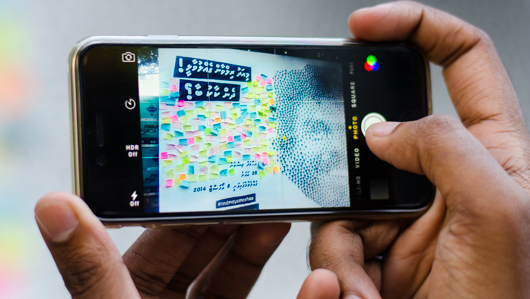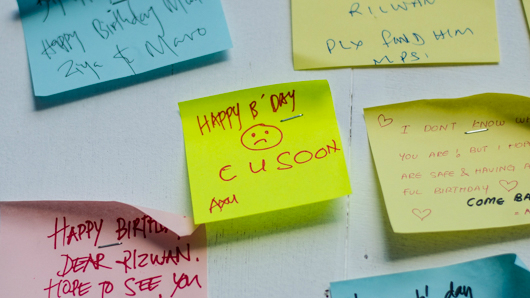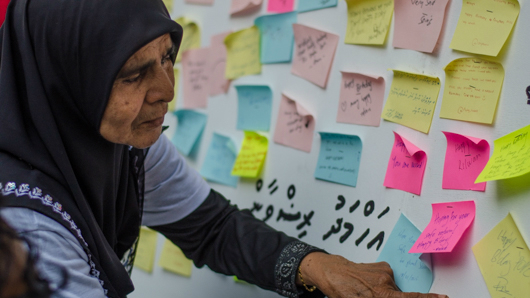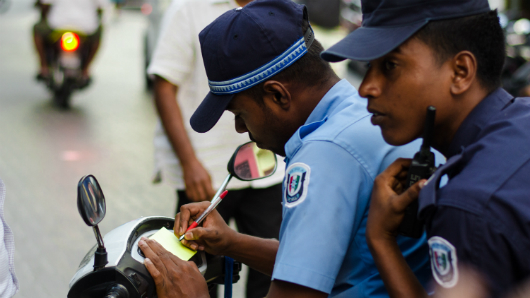Some police officers believe violence against women is caused by women failing to fulfill their duty as submissive wives, the Human Rights Commission of the Maldives (HRCM) has said.
In a report to the UN Committee on Convention on Elimination of all Forms of Discrimination Against Women (CEDAW), the HRCM said that meetings held with police during monitoring visits in the atolls revealed some police officers’ “initial belief is that the role of women is to raise children, take care of her family and be submissive to the husband”.
“Also, they have the notion that violence against women is mostly the result of women not fulfilling their duty as submissive wives.”
Reporting of violence against women is “proportionally low”, the HRCM said, noting it had received only 16 such cases in the period between 2008 and 2013. The Family Protection Authority had meanwhile received 19 cases in 2013 and 154 cases in 2014.
“The lack of confidence in the system, fear of intimidation, inadequate information on protection measures, stigmatization by the community along with lack of opportunities for economic empowerment are some of the factors that hold the victim from reporting to authorities,” the HRCM said.
Women’s empowerment is showing a negative trend, the commission continued, noting that conservative beliefs are fuelling an increase in the attitude that women’s role in society is to be submissive wives and to raise children.
Further, the report said there are an estimated 1,139 female sex workers in the country, while studies have shown children as young as 12 are involved in commercial sex, and that eight percent of female sex workers from 12 islands were under the age of 18.
The report also expressed concern over health risks to women, under-representation of women at policy and decision-making levels, high rates of unemployment among women, and high levels of sexual harassment at work.
Health risks
Basic health services including access to gynecologists, gynecology services, sexual and reproductive health services are not fully and easily accessible to people living in the atolls, the report said.
It also noted a high number of unsafe abortions in the country, indicating prevalence of sexual relations among teens and unmarried adults.
However, age appropriate sex education is not provided at schools and parents are against the idea of sex education. Meanwhile, access to contraceptives in the atolls is largely limited to married couples.
The commission said the government must take proactive measures against female circumcision, noting several NGOs have raised concern over religious scholars endorsing the practice as obligatory in Islam.
The report added, however, that the Ministry of Law and Gender has informed the HRCM there was not enough information to suggest female genital mutilation is an emerging issue that needs to be addressed.
The HRCM also expressed concern over a rise in marriages out of court, stating children born to such marriages would face legal issues and difficulties in accessing fundamental rights and freedoms. Women in such marriages “are bound to face social and legal consequences,” the commission said.
High unemployment
Women are far more disadvantaged than men in the labour market, the report continued, with unemployment levels among women at least a third higher than among men.
Women’s labor participation had declined from 42.1 percent in 2006 to 38.2 percent in 2010, the report said. Women earned less than men, with a mean monthly income of MVR4,674 (US$303) for women as compared to MVR7,036 (US$456) for men.
Almost half of women in the working population are economically inactive and women account for 68 percent of the economically inactive population. Preoccupation with household chores and raising children appears to be the predominant reason for female unemployment, the report said.
According to the HRCM, “sexual harassment at the workplace is a daunting reality and an accepted norm for most employed women,” but women do not take action for fear of disbelief and stigmatisation, embarrassment and shame.
The report also noted women’s underrepresentation at the policy and decision-making levels. Only three out of 17 cabinet ministers are women, and only five out of the 85 MPs are women.
There are no gender differences in primary school enrolment, but the HRCM noted a growing concern that parents are turning to home based education for girls with the increase in religious conservatism.
There are more female students at local higher education institutes, where they dominate in programmes associated with education, health sciences, and management. Measures must be taken to increase the enrolment of females in conventionally male dominated fields of study, the HRCM suggested.
Related to this story
Maldivian youth need access to sexual reproductive health education, services: Department of National Planning
Figh Academy VP endorses female genital mutilation
Parliament passes sexual harassment and sexual offences bills
Abortion in the Maldives: the untold story
Likes (2)Dislikes
(2)Dislikes (0)
(0) 





